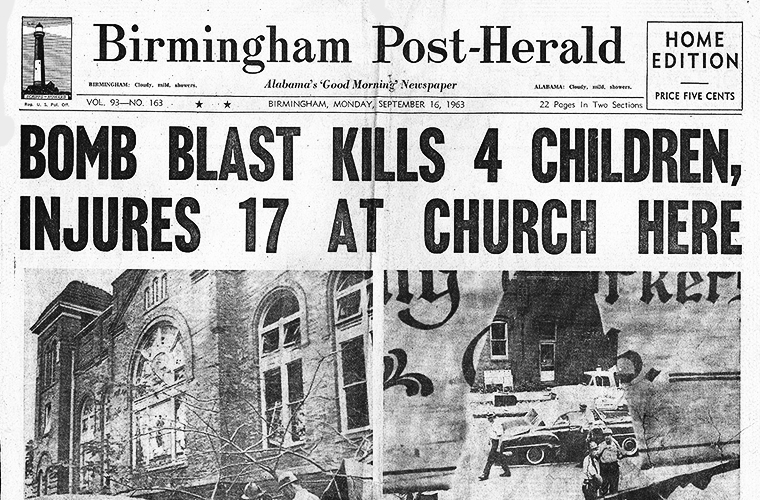The 16th Street Baptist Church bombing occurred on Sunday, September 15, 1963, when a powerful explosion ripped through the predominantly African American 16th Street Baptist Church in Birmingham, Alabama. The bombing resulted in the tragic deaths of four young girls and injured many others. This heinous act of racially motivated violence sent shockwaves across the nation and became a pivotal moment in the Civil Rights Movement. The 16th Street Baptist Church had been a central meeting place for civil rights activists in Birmingham, and its congregation had been actively involved in the struggle for racial equality. The church bombing was a targeted attack aimed at instilling fear and intimidation within the African American community and disrupting the progress of the civil rights movement.
The victims of the bombing, Addie Mae Collins, Cynthia Wesley, Carole Robertson, and Denise McNair, were all young girls between the ages of 11 and 14. Their senseless deaths sparked outrage and galvanized support for the civil rights cause. The tragedy brought renewed attention to the pervasive racism and violence faced by African Americans in the segregated South. The bombing also exposed the deep-seated racial tensions that plagued Birmingham at the time. The city had earned the nickname “Bombingham” due to the numerous racially motivated bombings targeting African American homes, churches, and community leaders. The 16th Street Baptist Church bombing was a stark reminder of the extreme measures some were willing to take to maintain the status quo of segregation and oppression.
In the immediate aftermath of the bombing, the FBI launched an investigation, but progress was slow due to reluctance from some members of the community to provide information. However, public outcry and pressure from civil rights leaders eventually led to the identification and arrest of four Ku Klux Klan members: Thomas Blanton, Bobby Frank Cherry, Herman Frank Cash, and Robert Edward Chambliss. Despite initial reluctance from local authorities to prosecute the perpetrators, the case eventually went to trial. In 1977, Robert Chambliss was convicted of murder and received a life sentence. It wasn’t until 2001 that Thomas Blanton and Bobby Cherry were finally brought to justice. Both were convicted of murder and sentenced to life in prison.
The 16th Street Baptist Church bombing stands as a tragic reminder of the deep-seated racism and violence that permeated American society during the Civil Rights Era. The loss of innocent lives served as a catalyst for change, spurring increased support for civil rights legislation and galvanizing public opinion against segregation and racial injustice. In 2013, on the 50th anniversary of the bombing, the city of Birmingham held a series of events to commemorate the lives lost and reflect on the progress made in race relations since that fateful day. The church itself has become a symbol of resilience and perseverance in the face of adversity, serving as a reminder of the ongoing struggle for equality and justice.
The 16th Street Baptist Church bombing remains a somber chapter in American history, but it also serves as a testament to the resilience of those who fought for civil rights and equality. The memory of the four young girls who lost their lives that day continues to inspire efforts to combat racism and injustice, ensuring that their legacy will never be forgotten.

